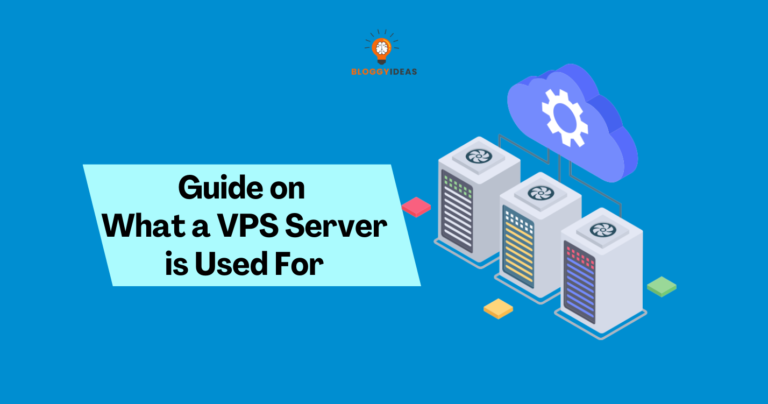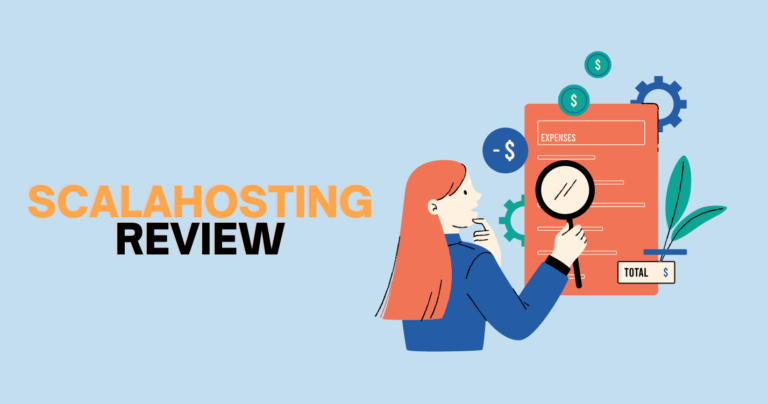A Complete Guide For Beginners: How Does a VPS Work
“Quick Overview” After months of brainstorming ideas for design and development, you’ve finally brought your brand-new website to life. Now, it’s time to select a hosting service to launch your site on the internet, and you’ve opted for a VPS.
However, you’re still unsure about how it functions and its technical details. Not to worry; we’ve got you covered! We’ve crafted this blog to clarify the concept of how a VPS server works.
But before delving into the technical aspects, let’s start with the basics of VPS hosting.
VPS Hosting: What Is It And How Does It Work?
What Is A VPS Server?
VPS, widely known as a Virtual Private Server, provides a secluded environment for hosting your website’s data, files, and other pertinent information. Utilizing virtualization technology, a single physical server is partitioned into multiple virtual servers.
Despite these virtual servers serving multiple users, a VPS ensures dedicated resources exclusively for you. Consequently, you won’t have to share server space with others. Typically, transitioning to a VPS becomes necessary when your website experiences increased user traffic, necessitating a more robust hosting solution.
What Is VPS Hosting?
VPS, short for Virtual Private Server, is a dedicated server typically owned and maintained by a hosting provider. This hosting solution utilizes virtualization technology to partition a single physical machine into multiple virtual servers, allowing for shared data distribution.
How Does A VPS Work?
The VPS environment differs significantly from other hosting platforms. In this setup, a physical machine is partitioned into multiple virtual servers to facilitate data transmission. This segmentation is made possible by the hypervisor, a virtual layer installed on the machine’s operating system (OS), enabling each virtual environment to operate independently.
The hypervisor allocates a specific amount of storage and memory to each hosted website, ensuring that users have a dedicated pool of resources at their disposal. This setup allows for easy management, customization, and full utilization of the server’s benefits. Additionally, users receive a dedicated IP address through the hypervisor technology integrated into their OS by the hosting provider.
One of the key advantages of the hypervisor is its compatibility with various operating systems, including Linux, Windows, and macOS, enabling its installation on different systems according to user preferences.
Moving on to VPS accounts, there are primarily two types: Self-managed VPS and Fully Managed VPS.
Self-managed VPS
A self-managed VPS account grants you full control over your hosting environment. The provider offers no maintenance or management services, solely setting up the physical server.
Opting for a self-managed account is recommended for individuals with ample technical expertise and access to efficient resources.
Here are some advantages of picking a self-managed VPS:
- Freedom of customization
- Inexpensive price
- High-end security
- Self-reliance
Fully Managed VPS
A fully managed VPS account is one where a hosting company or provider takes care of all server management tasks on your behalf. You won’t need to worry about the technical intricacies of server administration.
This type of account is ideal for users who lack the knowledge and experience necessary to run servers independently. However, it typically comes at a higher price point compared to self-managed plans. Additionally, you’ll have limited control over customizations, as the hosting provider handles all modifications.
Below are a few amazing advantages of fully managed VPS:
- The host takes care of server maintenance.
- The host conducts timely software or hardware updates.
- The host monitors your site and provides real-time information on the same.
- The host protects your site and takes regular website backups.
- The host checks your website to safeguard it from viruses and cyber-attacks.
- 24*7 tech support for your technical and non-technical concerns.
What Are the Benefits of VPS Hosting?
Reliability
A Virtual Private Server (VPS) offers reliability and stability. With control resting in your hands, you can efficiently manage storage capacity and bandwidth within the server space.
Security
Bid farewell to compromises on security! VPS provides an isolated environment, offering an additional layer of protection to safeguard your website against malware, hacking, and other cyber threats.
Quick Performance
Experience swift performance with a VPS server, ensuring rapid turnaround times for your website.
Scalability
Concerned about future service expansion? Put your worries to rest! Easily transition to different plans tailored to your business requirements, fostering seamless growth.
Cost-effectiveness
VPS stands out as one of the most cost-effective solutions, enabling full control and customization of your website without incurring the expenses associated with a Dedicated Server.
Root Access
Gain root access and Secure Shell Protocol (SSH) to your server, empowering you to manage everything independently.
Customizations
Tailor your experience by selecting your preferred Operating System (OS), software, and features, crafting a user-friendly environment.
Data Protection
VPS hosting ensures comprehensive data protection across all plans, with the added flexibility to create server backups whenever necessary.
Now that we’ve outlined the benefits, let’s delve into the indicators prompting a shift to VPS.
Reasons For Migrating To VPS?
Let’s know the reasons for migrating to VPS hosting!
Outgrown Traffic
If you’ve noticed a recent surge in user traffic on your website, it’s time to consider upgrading to a VPS server. As a business owner, you want to accommodate multiple users and ensure they can navigate your site smoothly. However, this can only be achieved if your hosting platform can handle a large number of visitors simultaneously.
This is where VPS (Virtual Private Server) comes in. This hosting solution is capable of efficiently managing high levels of traffic without causing your website to crash or slow down.
Security Concerns
If security is a top priority for you, then transitioning to VPS hosting is a wise choice. VPS offers advanced security features, ample backup space, and modern tracking capabilities to safeguard your users’ information, your site’s reputation, and protect against cyber attacks.
Furthermore, with VPS hosting, you have exclusive access to your server space, eliminating the need to share resources with other website owners, thereby enhancing overall security.
Facing Lagging Issues
Are you experiencing lag problems with your current hosting provider?
OR
Is your site suffering from slow loading times?
If so, we highly recommend migrating your website to a VPS. With this hosting platform, scaling your site is a breeze. It offers ample computing resources and processing power to enhance the speed of your site.
Customization Options
By opting for VPS hosting, you gain root access and SSH, granting you complete control over the server. This means you’re solely responsible for making and managing changes. You can customize your site to your heart’s content, upgrade security measures, enhance website performance, and implement server-level modifications without needing approval from the host, as required in shared hosting environments.
Server Issues
Encountering a 500 internal server error is a common frustration when hosting a website. If this problem occurs frequently, migrating to a VPS server is the optimal solution. Fortunately, VPS platforms typically experience minimal to no server errors, ensuring enhanced website performance.
Limited Budget
For those operating within a tight budget but seeking a hosting package that offers a comprehensive range of features for their website, VPS is the ideal choice. This platform offers ample bandwidth and storage space, along with increased RAM and security measures, all at an affordable rate compared to dedicated hosting.
Hosting Multiple Sites for Clients
Clients are invaluable assets for any business, and it’s crucial to prioritize their satisfaction to foster long-term partnerships. To host your clients’ websites securely and reliably while staying within a reasonable budget, VPS hosting is recommended.
VPS hosting platforms enable you to host unlimited domains, providing the necessary resources to seamlessly operate your clients’ sites.
Frequently Asked Questions About VPS
1. Can a VPS function without an Internet connection?
No, a VPS cannot operate without an Internet connection.
2. What can be hosted on a VPS?
A VPS can host a variety of services, including high-traffic websites, gaming servers, forex trading platforms, web servers for practicing programming skills, open-source spaces for side projects, eCommerce stores, and VPN connections.
3. Which hosting service is superior to VPS?
Dedicated Hosting surpasses VPS Hosting due to its enhanced protection against malware, hacking, and cyber attacks. Additionally, with dedicated hosting, you have complete control over security breaches, a level of control less attainable with VPS.
4. Does a VPS come with its own IP address?
Yes, each VPS comes with its own individual IP address. However, this IP address is not publicly accessible, similar to a home IP address. It can only be accessed by the VPS itself and cannot be shared with other devices on the network. You can assign a unique IP address to each domain, although this typically incurs an additional fee.
5. How much traffic can a VPS handle simultaneously?
A VPS can typically manage over 10,000 visitors per day. With proper optimization, this capacity can extend to around 50,000 visitors daily. However, owners of heavy websites should expect between 10,000 to 20,000 visitors daily.
6. What are the costs associated with running a VPS?
The cost of VPS Hosting varies depending on the type of hosting service chosen. Prices can range from as low as $5 per month to over $100 per month.If you are looking for affordable and reliable VPS Hosting, don’t waste any more seconds and visit Bluehost.
Related Resources:







